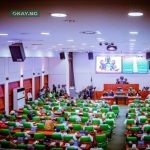Nigeria is intensifying its push for domestic solar panel manufacturing, aiming to curtail the staggering N200 billion spent on imports, according to the Rural Electrification Agency (REA). The agency’s Managing Director/Chief Executive Officer, Abba Aliyu, revealed this during a recent roundtable with the Lagos State Government, highlighting the urgent need to shift from import dependence to local production.
“Over N200bn has been spent on the importation of PV panels into the country,” Aliyu stated, emphasizing that “one of the key things our agency is striving for is domesticating the manufacturing of this renewable equipment.” He expressed confidence that Lagos, as Nigeria’s “centre of excellence,” will spearhead this transformative drive.
The REA’s efforts are already yielding results. Aliyu pointed to the expansion of a PV panel assembly plant in Ikotun, Lagos, which has increased its capacity from 10 megawatts to 110 megawatts through collaboration with the agency. Furthermore, the REA is finalizing a joint development agreement with Green World for a $150 million lithium battery assembly plant in Lagos, a move poised to bolster the local renewable energy ecosystem.
The push for local manufacturing aligns with the Federal Government’s broader strategy, as articulated by the Minister of Science and Technology, Uche Nnaji. He asserted the government’s commitment to supporting local solar panel production and restricting imports, leveraging the capabilities of institutions like the National Agency for Science and Engineering Infrastructure (NASENI). “We will stop all these importations of solar panels. We will support our local industries to grow,” Nnaji declared.
However, the Renewable Energy Association of Nigeria (REAN) has raised concerns about the potential impact of an immediate import ban. They argue that solar energy has become a lifeline for underserved communities, powering homes, schools, and businesses. “Businesses, communities, and individuals rely on solar solutions to power homes, schools, hospitals, and enterprises. The renewable energy sector has grown significantly, attracting investment and fostering innovation. A ban on solar imports, without first strengthening local production capabilities, risks derailing this progress,” REAN stated.
Read Also: Renewable Energy Association Decries Planned Solar Panel Import Ban
This debate underscores the delicate balance between fostering local industry and ensuring uninterrupted access to vital renewable energy solutions.The focus now is on a strategic transition that supports domestic manufacturing without jeopardizing the progress made in rural electrification.
The REA’s partnership with the Lagos State Government, formalized through a Memorandum of Understanding, is a crucial step towards electrifying rural communities. This collaboration aims to leverage Lagos’s industrial prowess to create a sustainable and self-reliant renewable energy sector. The success of these initiatives will hinge on effective policy implementation, strategic investments, and robust public-private partnerships. The need to create efficient rural electrification is paramount.
The government’s ambitious plan to achieve solar panel self-sufficiency holds significant implications for Nigeria’s energy future. By reducing reliance on imports, the country can stimulate economic growth, create jobs, and enhance energy security. The journey, however, requires careful navigation to ensure a smooth transition and safeguard the progress made in expanding access to clean energy.












